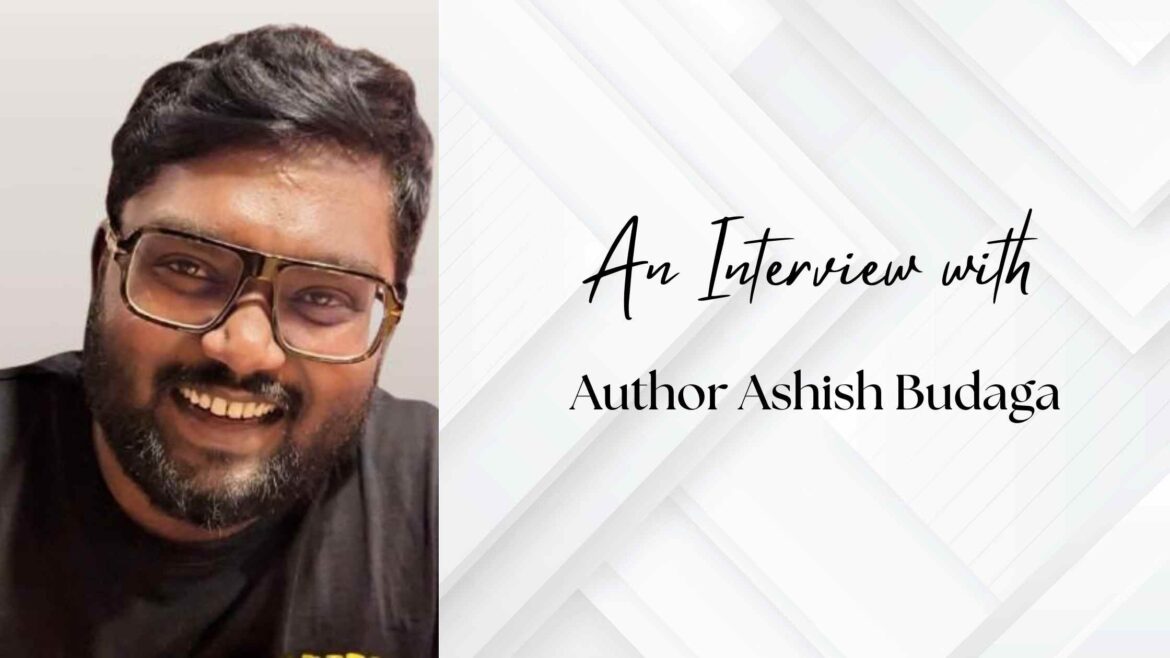The Literature Times: Congratulations on your latest book! What inspired you to write this story?
Ashish Budaga: I’ve always been fascinated by the raw, unfiltered conversations that happen when people let their guard down. Over the years, I realized that my way of looking at life—questioning norms, embracing imperfections, and finding meaning in the everyday—resonated deeply with those around me. People often told me that my perspectives helped them navigate their own struggles. At some point, I felt an undeniable pull to put these thoughts into words—not as advice, but as a mirror that helps readers see themselves more clearly. If even one person finds their lost self through this book, it’s worth it.
The Literature Times: Can you share some insights into your writing process? How do you approach developing a new story?
Ashish Budaga: I start by dismantling the idea—looking at it from every possible angle, free from biases. I strip it of societal labels, personal conditioning, and external noise until I reach its core truth. Once I understand the essence of what I want to express, I build around it—not with rigid structure, but as an evolving conversation. Writing, for me, is about capturing an emotion, a question, or a realization in its most authentic form.
The Literature Times: Your book explores deep and complex themes. What message do you hope readers will take away from it?
Ashish Budaga: If I had to sum it up in one sentence: Know yourself, or the world will define you. We live in a time where identities are shaped by external expectations rather than internal truths. This book is an invitation to pause, step away from the noise, and truly ask yourself—who am I, beyond what the world has told me to be? Until we understand ourselves at our core, we live reactively, chasing things that don’t align with us. Self-awareness is the first step to conscious living, and conscious living is the key to fulfillment.
The Literature Times: Were there any challenges you faced while writing this book? How did you overcome them?
Ashish Budaga: It is quite challenging being first time author, where I am totally clueless on how to put together the ideas into words that communicate the idea that I want to communicate. I started writing random thoughts and then building each idea, which gradually shaped into a structure. The real challenge is to write in a manner that you want the reader to feel and understand what your philosophy is without leaving a room for ambiguity or false interpretation. To write in a manner that provides utmost clarity has been challenging
The Literature Times: How do you balance character development and plot progression in your writing?
Ashish Budaga: When you’re writing about self-discovery, it’s easy to get lost in deep, philosophical explorations. But the real challenge is making it engaging—keeping the reader turning the pages, not because they have to, but because they want to. I approached it like a dialogue with a close friend, ensuring that every concept leads somewhere meaningful. The book doesn’t just offer ideas—it takes the reader on a journey, guiding them closer to themselves with each page.
The Literature Times: What kind of research did you undertake for this book? Did anything surprising come up during your research?
Ashish Budaga: This book wasn’t built on research; it was built on experience, observation, and introspection. I deliberately avoided excessive research because I didn’t want to dilute my own perspective. However, I did explore the best ways to structure a book, how to maintain flow, and how to make sure the message reaches the reader in the most impactful way. That’s when I became firm on my decision to write in a free-flow, conversational style—because transformation happens through connection, not just information.
The Literature Times: Are there any authors or books that have influenced your writing style or storytelling approach?
Ashish Budaga: Paulo Coelho planted the seed of deep philosophical thinking in me at a young age. His ability to weave wisdom into simplicity has always inspired me. Khaled Hosseini’s storytelling, the way he makes you feel every word, has also been a huge influence.
The Literature Times: How do you stay motivated and creative, especially when facing writer’s block?
Ashish Budaga: Writing, for me, has never been a task—it’s an extension of how I think and process life. As a kid, I wrote poems about everything around me, seeing stories in the smallest of things. Growing up, life pulled me in different directions, but the love for writing never left. When I hit writer’s block, I don’t force words; I take a step back, live, observe, and feel. Creativity flows naturally when you stop trying to create and start experiencing life.
The Literature Times: What advice would you give to aspiring writers who are just starting their journey?
Ashish Budaga: Write—not to impress, not to conform, but because something inside you needs to be expressed. Forget conventional rules, forget perfection. Just begin. The structure, the refinement, the style—all of that will evolve. What matters is that you write with honesty. The best books aren’t the ones that follow the rules; they’re the ones that make the reader feel something real.
The Literature Times: Can you give us a sneak peek into your next project or what readers can expect from you in the future?
Ashish Budaga: There are two more books in the pipeline, both delving deeper into life, self-awareness, and the journey of knowing oneself. After that, I’ll be venturing into fiction. One of my upcoming novels follows the story of a man the world sees as a failure—someone who has repeatedly stumbled, fallen, and been labeled a loser. But life isn’t linear, and neither is growth. What he becomes, and whether he rises, is the heart of the story. Then, there’s a superhero novel that’s incredibly close to my heart—a story not just of power, but of purpose.



